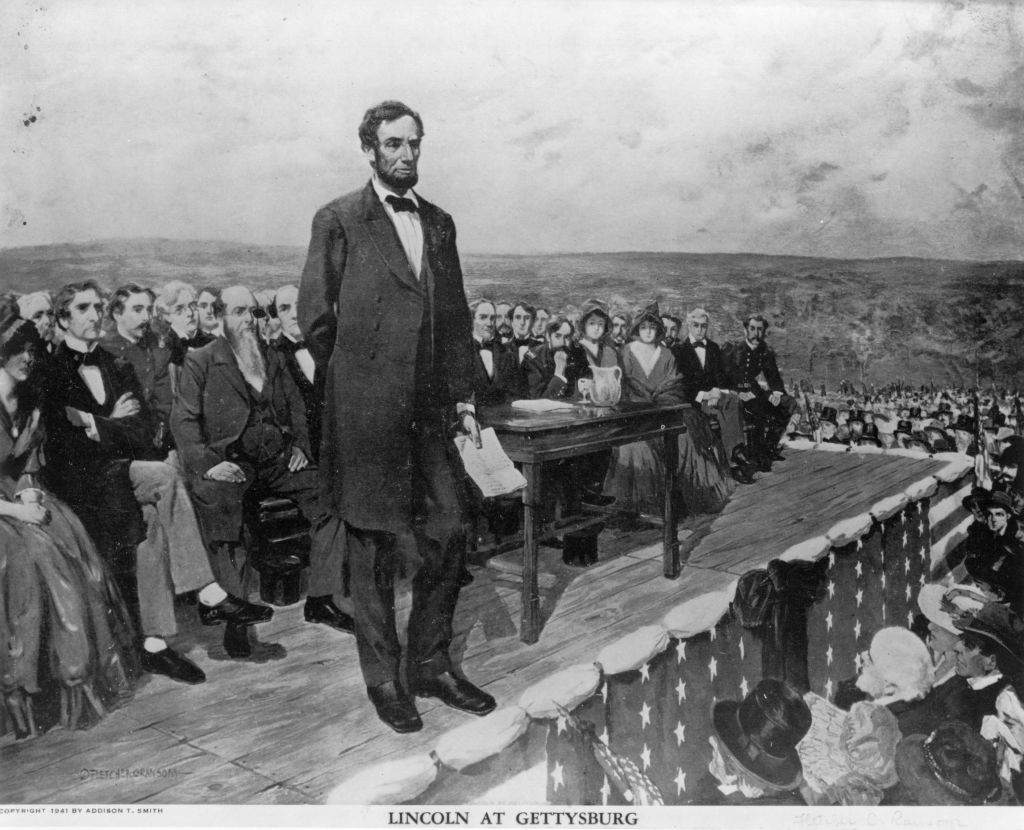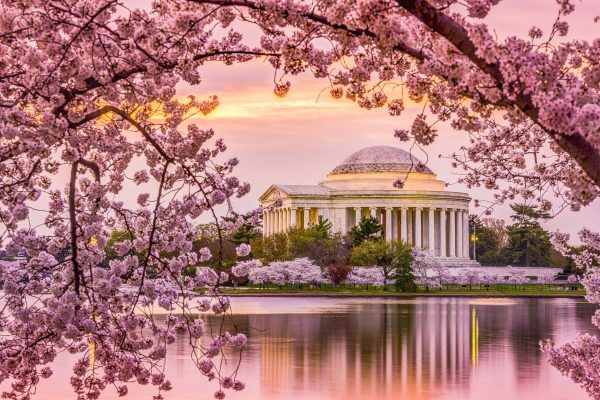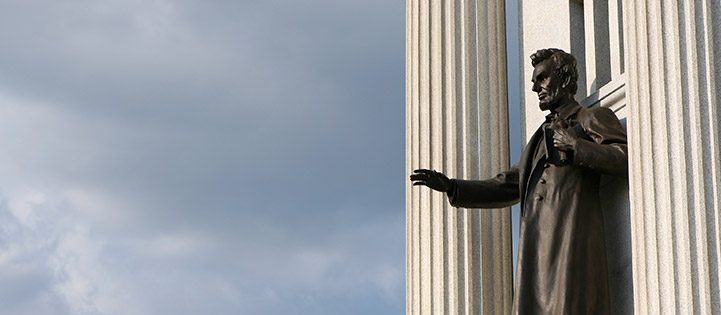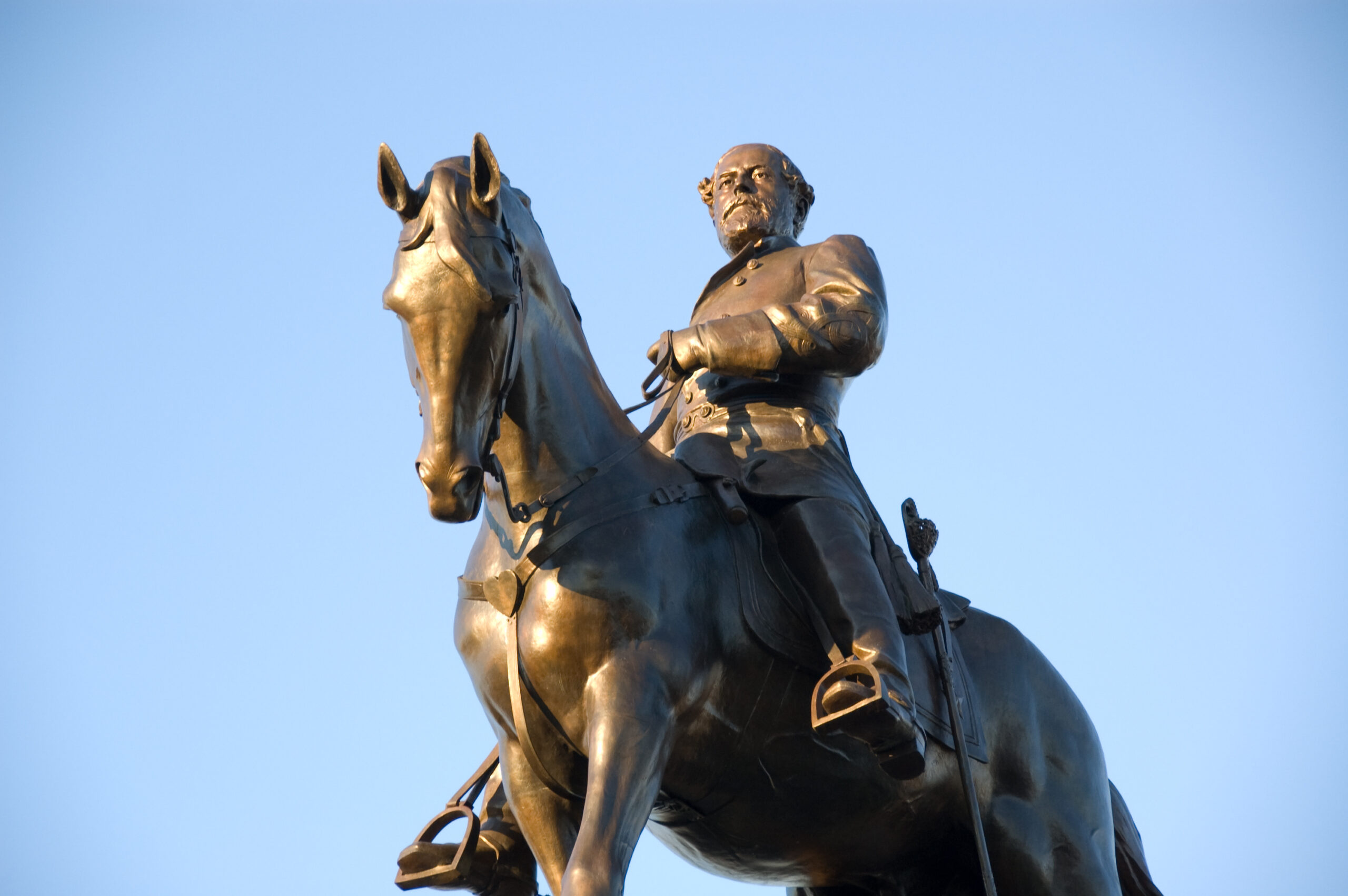History sustains us when our ties to one another become frayed.
The Greatest American

An imagined conversation on Lincoln’s 215th birthday
On this 215th birthday of America’s sixteenth and most celebrated president, Americans hoping to better understand our current political moment should consider an imaginary conversation between our tallest and shortest presidents: Abraham Lincoln and James Madison.
The topic of this fictional discussion would center on the all-important question of the future reputation of the Founding Fathers.
“What,” these two former presidents ask one another, “do you think future generations will make of the men and women who presided over the genesis of the American republic? Will they gaze in patriotic wonderment, stand agog of their soaring achievements, be endlessly appreciative of the bounty of human liberty enjoyed by all?”
“Or,” they considered, “will the haze of history diminish the vitality of their achievements? Will the blood of the revolution run dry in the collective memory of the American people? Will the decades and centuries erect a wall of amnesia so high future Americans will have no real grasp of just how unique the achievements of the founding generation were?”
Madison, the political realist, was sanguine on this question, believing that the colossal achievements of the founding generation—both its gruesome sacrifices on the battlefield as well as the shrewd statecraft required to fashion a new constitutional order, ultimately birthing the first liberal democratic republic in human history—would amplify the affections of the body politic over time. A sprawling future of Independence Days filled with booming cannons, exploding fireworks, and barbequed hot dogs would be fully consistent with Madison’s hopes and expectations.
Lincoln, however, accurately presaged the despoiling power of civic decay. One of his earliest and perhaps most underappreciated speeches, given when he was merely 28 years old, was his 1838 Lyceum Address in which he asks and answers his own question, “Shall we expect some transatlantic military giant to step the ocean and crush us at a blow? Never! . . . At what point then is the approach of danger to be expected? I answer. If it ever reach us it must spring up amongst us; it cannot come from abroad.”
To adjudicate between the competing predictions of Madison and Lincoln, one need look no further than the recent treatment of Lincoln himself.
In late 2020, the Abraham Lincoln Monument in front of San Francisco’s City Hall was defaced. Just a few weeks earlier, a committee in the San Francisco School District was considering a name change for Lincoln High School. At the University of Wisconsin flagship Madison campus, students organized a petition for the removal of a statue of Lincoln from the iconic Bascom Hill because, as one student leader explained, “I just think he did, you know, some good things … The bad things that he’s done definitely outweighs them.” In Boston, a replica of the famed Freedman’s Memorial was removed from a public park; it stands shrouded in a storage locker today.
A gobsmacking 31 percent of Americans under the age of 30 characterize the founders as “villains.”
James Madison was rarely on the wrong side of any political question. But when it comes to his soothsaying powers, he definitely comes up short. Lincoln’s concerns, it turns out, were well founded.
Conservatives rightly worry that young Americans today have been corrupted by the historic distortions of charlatans like Nikole Hannah-Jones, or that they associate academic sophistication with civic self-loathing in the spirit of Howard Zinn and his cadre of forgettable acolytes. This worry is similar to the concern of Lincoln, who historian John Patrick Diggins noted, was worried that “time induces forgetfulness, indifference, and eventually irreverence for laws, ideals, and other values that arise from human struggle.”
However, as a high school and college teacher of American civics for a quarter of a century, it is important to note an important and nuanced difference between the concerns of modern conservatives and Lincoln: the crisis in our young people today is not so much iconoclasm, though its ferocity on college campuses can’t be denied. The broader and more remediable concern—Lincoln’s specific concern—is simple ignorance about our own history and institutions.
“The approach of danger,” as Lincoln described it in his Lyceum Address, does not manifest on battlefields or in boisterous mobs, but in modern classrooms low on expectations and high on laxity.
This is why a consistent theme of Lincoln’s statecraft was the necessity of continual and impassioned civic renewal. Some of his finest and most famous rhetorical flourishes—appealing to the “better angels of our nature,” evoking the “mystic chords of memory,” venerating “the fountain whose waters spring close by the blood of the Revolution”—remind Americans that the ties that bind us are forever tenuous, that American citizenship is not held together from above by the monarchical or ecclesiastic diktats of kings or popes, but instead must be organically renewed from below in homes and in schools, through Tocquevillian associations and localized commitments.
Just a few decades ago, at the outset of my teaching career, a powerful case could be made that Madison’s vision of the future had won out, that Americans still knew enough to revere the founding generation that twice breathed life into the American soul, once in 1776 and again in 1787. Maybe my students back then couldn’t tell you much about the biographies of men like George Washington, Thomas Jefferson, and Benjamin Franklin. Maybe they couldn’t offer nuanced answers detailing the differences between the Federalists and Democratic-Republicans. But they instinctively knew that these men were responsible for creating the Novus Ordo Seclorum (“A New Order of the Ages”) commemorated on the Great Seal of the United States. They knew that the American polity was founded on principles considered to be ubiquitous and universal. They knew that the United States—its Constitution, its devotion to self-government, its stentorian commitments to civil and economic rights for all—was the exception to the rule of human history and that they were the beneficiaries of the Founders’ wisdom and sacrifice.
These instincts, frankly, are no longer present.
The evidence is found in the cyclone of toxicity engulfing our politics today. There isn’t much unum to counteract the pluribus. Why? Because Americans rage at a history and against principles they no longer fully appreciate or understand.
Lincoln’s most enduring lesson, the lesson we should collectively heed on his birthday, is that knowledge of our own history rocks the cradle of civic renewal. When decent parents, traditional teachers, and fellow citizens tell the story of America to their children, chic cynicism and cheap radicalism will have no refuge. This was the message Lincoln was trying to convey to the Young Men’s Lyceum of Springfield when he observed, “we must live through all time, or die by suicide.”
Let’s live through all time, free, informed, and joyful for what lies ahead.
The American Mind presents a range of perspectives. Views are writers’ own and do not necessarily represent those of The Claremont Institute.
The American Mind is a publication of the Claremont Institute, a non-profit 501(c)(3) organization, dedicated to restoring the principles of the American Founding to their rightful, preeminent authority in our national life. Interested in supporting our work? Gifts to the Claremont Institute are tax-deductible.
How Abraham Lincoln created Thanksgiving.
A plan to revive the American memory.



